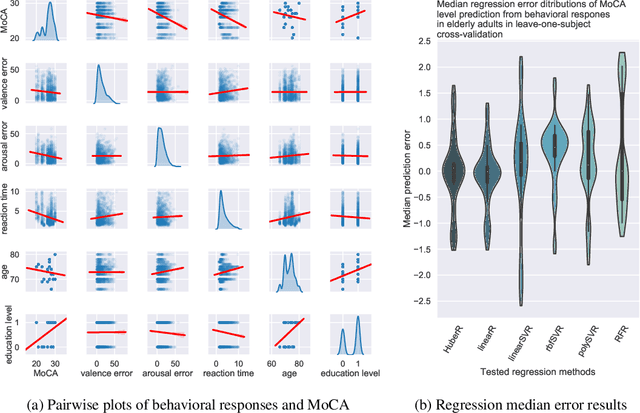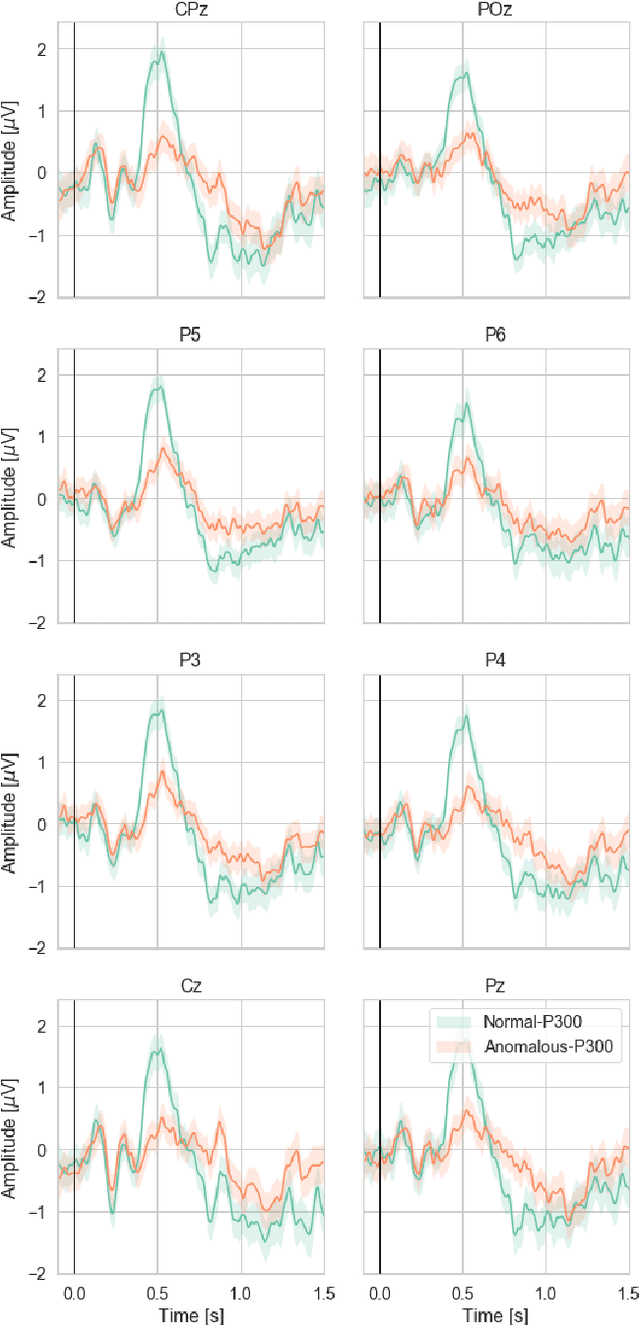Marcin Koculak
Cognitive Assessment Estimation from Behavioral Responses in Emotional Faces Evaluation Task -- AI Regression Approach for Dementia Onset Prediction in Aging Societies
Nov 25, 2019
Abstract:We present a practical health-theme machine learning (ML) application concerning `AI for social good' domain for `Producing Good Outcomes' track. In particular, the solution is concerning the problem of a potential elderly adult dementia onset prediction in aging societies. The paper discusses our attempt and encouraging preliminary study results of behavioral responses analysis in a working memory-based emotional evaluation experiment. We focus on the development of digital biomarkers for dementia progress detection and monitoring. We present a behavioral data collection concept for a subsequent AI-based application together with a range of regression encouraging results of Montreal Cognitive Assessment (MoCA) scores in the leave-one-subject-out cross-validation setup. The regressor input variables include experimental subject's emotional valence and arousal recognition responses, as well as reaction times, together with self-reported education levels and ages, obtained from a group of twenty older adults taking part in the reported data collection project. The presented results showcase the potential social benefits of artificial intelligence application for elderly and establish a step forward to develop ML approaches, for the subsequent application of simple behavioral objective testing for dementia onset diagnostics replacing subjective MoCA.
Brain correlates of task-load and dementia elucidation with tensor machine learning using oddball BCI paradigm
Jun 19, 2019
Abstract:Dementia in the elderly has recently become the most usual cause of cognitive decline. The proliferation of dementia cases in aging societies creates a remarkable economic as well as medical problems in many communities worldwide. A recently published report by The World Health Organization (WHO) estimates that about 47 million people are suffering from dementia-related neurocognitive declines worldwide. The number of dementia cases is predicted by 2050 to triple, which requires the creation of an AI-based technology application to support interventions with early screening for subsequent mental wellbeing checking as well as preservation with digital-pharma (the so-called beyond a pill) therapeutical approaches. We present an attempt and exploratory results of brain signal (EEG) classification to establish digital biomarkers for dementia stage elucidation. We discuss a comparison of various machine learning approaches for automatic event-related potentials (ERPs) classification of a high and low task-load sound stimulus recognition. These ERPs are similar to those in dementia. The proposed winning method using tensor-based machine learning in a deep fully connected neural network setting is a step forward to develop AI-based approaches for a subsequent application for subjective- and mild-cognitive impairment (SCI and MCI) diagnostics.
 Add to Chrome
Add to Chrome Add to Firefox
Add to Firefox Add to Edge
Add to Edge